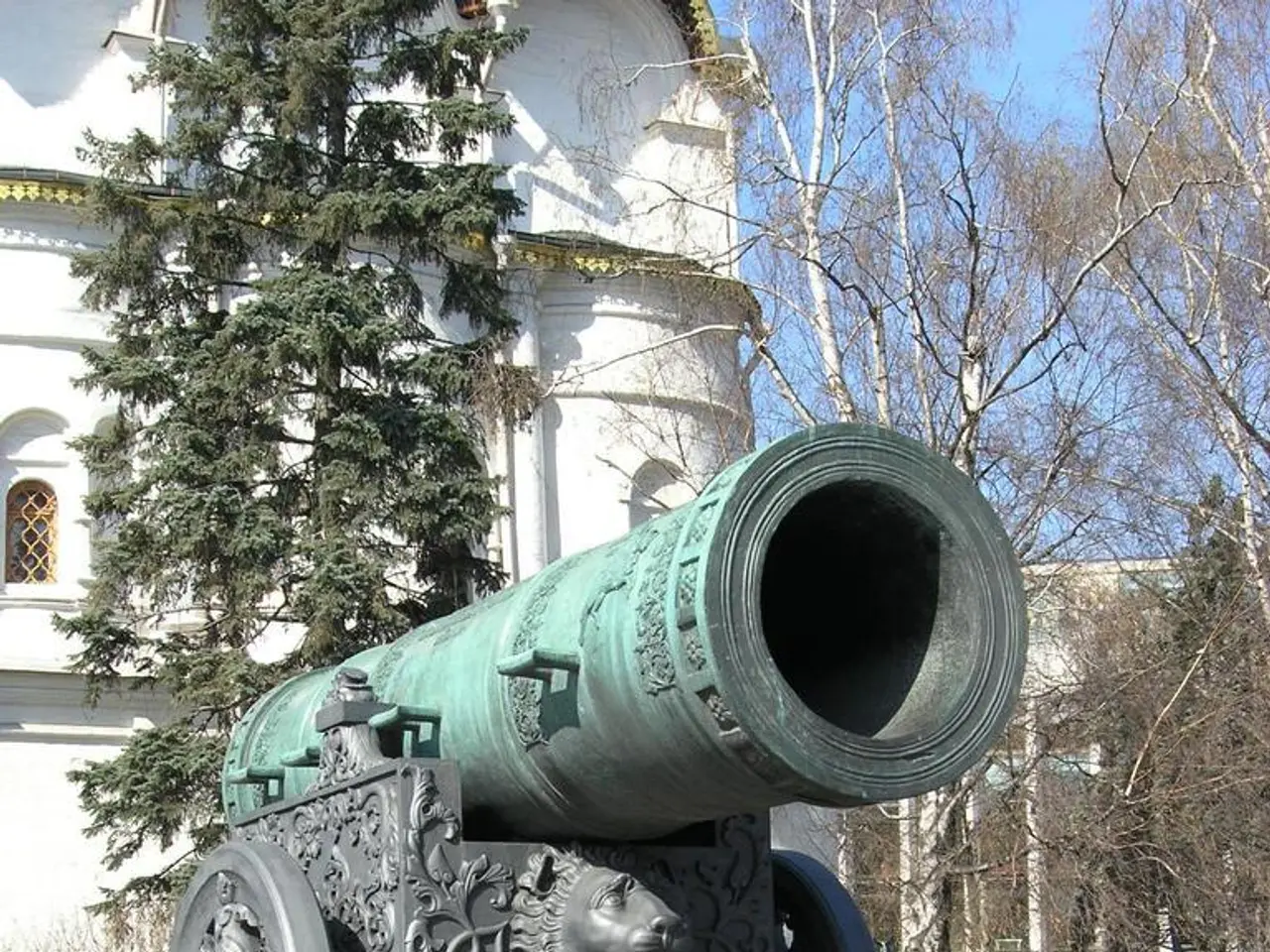Russia undergoes significant military restructuring, according to Latvia's intelligence agency.
Russia is undergoing a significant military reform, as outlined in the latest MIDD report. This reform aims to increase the size of the Russian armed forces from one to one and a half million soldiers, with a focus on strategic changes in the western direction.
The reorganisation, which was initiated in 2024, has resulted in the formation of two new military districts: the Leningrad Military District, responsible for the north-western strategic axis covering the Baltic States and Scandinavia, and the Moscow Military District, which oversees Central Europe and part of Ukraine. The commander-in-chief of the Leningrad Military District is not publicly known as of the latest information in 2025.
The Moscow Military District is expected to work closely with the Belarusian armed forces, and Russia and Belarus are planning to hold a joint strategic exercise, "Zapad-2025". The scale and territory covered in this exercise will largely depend on the situation in Russia's war against Ukraine.
Russia's provocations, such as unauthorized violations of airspace borders, aggressive approaches to aircraft and ships of NATO member states, are likely aimed at intimidating and testing a potential adversary. However, the MIDD report suggests that Russia does not have the military capability for another land operation at the strategic level in the current circumstances.
The most significant changes are taking place in the two motorised rifle brigades of the 6th General Army closest to Latvia, which are being transformed into divisions. Similarly, the Baltic Fleet Marine Infantry Brigade, stationed in the Kaliningrad Exclave, is to be reformed as a division. This reorganization is Russia's formal response to the accession of Finland and Sweden to NATO, according to the report.
It is expected that the size of the Russian armed forces on the Latvian border will start to increase as the intensity of hostilities in Ukraine decreases. The MIDD report also suggests that Russia will find it increasingly difficult to return to a peacetime economy in the medium and long term.
The service has published a threat assessment and last year's activity report, highlighting the most significant changes and Russia's commitment to its declared military reform plan. Despite these changes, it is crucial to maintain a vigilant approach and continue to monitor Russia's military activities in the region.
Read also:
- United States tariffs pose a threat to India, necessitating the recruitment of adept negotiators or strategists, similar to those who had influenced Trump's decisions.
- Weekly happenings in the German Federal Parliament (Bundestag)
- Southwest region's most popular posts, accompanied by an inquiry:
- Discussion between Putin and Trump in Alaska could potentially overshadow Ukraine's concerns








